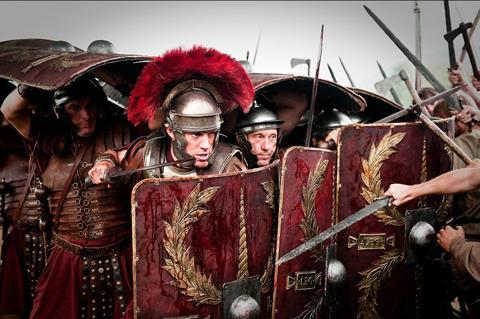‘How often do you think about the Roman Empire?’ It’s the question that’s dominating many corners of the internet, and is turning up some surprising results

How often do you think about the Roman Empire?
Not often enough, according to TikTok. The surprising trend has resulted in thousands of women asking their unsuspecting boyfriends or husbands this very question, to astonishing results.
It seems most men confess to thinking about this historical era weekly, or even daily.
@ambarrail This trend is incredible. Some of the best ones #romanempire #romanempirecompilation ♬ original sound - ambarrai
Why has a civilisation dated prior to the printing press and the lightbulb had such a profound impact on young men in 2023?
Is it because they’re attracted to the overt masculinity of Augustus and his descendants? Are they inspired by the period of vast military expansion and structural innovation? Or are they simply recognising tell-tale social parallels in between our society and theirs – parallels of a society both in decline, and devoid of Christianity?
Post-Christian
The post-modern West has been shaking free of her founding faith for many years now. A recent Times poll showed that three quarters of Church of England priests believe that Britain can no longer be described as a Christian country. The 2021 census backs this up, with Christians falling into the minority in the UK for the first time in census history.
Public sentiment has crystalised into a worrying legal trend. Old blasphemy bans that protected Christian sensitivities have been rightfully done away with to allow for free speech. But new “hate speech” bans bring back the same sort of restrictions, often targeting beliefs held by Christians and others outside of new state-approved “orthodoxy”. Headlines read of Christians arrested for praying silently in their heads near abortion facilities, put on trial for Bible verse tweets, or locked in cells for reading scriptures on public streets. We are, decidedly, in a post-Christian era.
What are you worth?
But before we throw the Church out of society, it’s worth considering the impact it has had on the unseen culture that pervades our norms and standards. The very framework by which we understand and appreciate equality, for example, is a deeply Christian one. Pre-Christian Rome can shed a great deal of light here. Christianity – the subversive, radical new ideology of its day – upended one of the most misogynistic, hedonistic, anti-woman, damagingly selfish, utilitarian cultures ever seen.
Take, for example, this simple question. How much is a girl worth?
In pre-Christian Rome, you might have had one of several answers.
As a daughter? Worth nothing. As a slave? Worth several months’ wages. In a brothel? Worth the same as a loaf of bread.
Baby girls were so unvalued that unwanted children were discarded on rubbish heaps, exposed to the elements, drowned, or left as food for dogs – with no legal consequence abounding.
In an era in which women were property, Christianity brought a revolutionary new answer to the societal question: How much is a girl worth? She’s worth everything. She is irreplaceable, and invaluable. She holds intrinsic worth and dignity. Simply, because she is human - made in the image of God. It was the first establishment of a human rights framework – one that would be codified thousands of years later in the UN Declaration on Human Rights.
But as today’s world rejects Christianity, they reject the framework of intrinsic human worth with it, and fold back into pre-Christian presumptions. On the left and the right, women are increasingly being valued and costed by different factors. Whether they are a “mid” or a “ten”. Their “body count”. They are bought and sold as daughters on an international baby market; devoured in the marketplace as objects for sexual gratification; costed by their Only Fans uploads; commodified for commitment-free sex as prostitutes; or for sex-free reproductive organs as surrogates.
You cannot place a price on a human being.
A revolutionary message
Of course, sometimes, the word “Christianity” has been abused by sinful people who commit acts contrary to its teaching. The sins of bloodthirsty crusaders, or abusive Church leaders, masquerading as ambassadors for the faith have inflicted harm and suffering entirely oppositional to what the faith offers.
But the faith itself is the basis for the very values that give us value. We are deeply horrified by the mistreatment of vulnerable human beings by abusive leaders precisely because our underpinning, Christian-inspired human rights framework teaches us their inherent worth and dignity.
The Christian message delivered inherent dignity to those who were societally stripped of it. But now, the West wants to strip Christianity itself out of society.
As the UK and the rest of the West seeks to distance itself from Christianity, it might want to follow the young men of TikTok in reflecting on the sins of the Roman Empire. It’s lesson? We can all benefit from a society where people of minority beliefs are allowed into the public discourse. In the post-enlightenment era, we might still learn a thing or two from Christians, and their human rights-based values.






































No comments yet